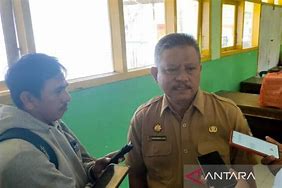The JKN (Jaminan Kesehatan Nasional), more commonly known as the BPJS Kesehatan or BPJS Ketenagakerjaan, is Indonesia’s national health programme. As a member of the BPJS, medical treatment is available for free or for a small charge. The system is in its infancy and is funded by national taxation.
Below public hospitals sit the community health centres, known as ‘puskesmas’. Pukesmas are the primary health providers in many rural areas, often accompanied by the ‘posyandu’, an integrated health service for the most at risk. There are two kinds of Puskesmas, those with beds and those without. Puskesmas are often stretched to their limit.
Indonesia does not currently have a nationwide emergency service; private ambulance services are available but are limited to the larger cities and may not be reliable in urgent situations.
Public healthcare coverage has seen vast improvements over the last 10 years. However, many of the public hospitals and clinics have yet to reach Western standards of medical care. In the main cities, such as Jakarta, Surabaya or Bandung, you will find some adequate facilities close to Western standards. However, the long waiting times, absence of English-speaking professionals and an overall lack of medical personnel make the public system undesirable for many expats. Equally, the private system has its limits. For many medical emergencies and complex surgical procedures, patients are evacuated to a nearby country.
As a result, non-natives and more affluent natives opt for private health insurance with extensive coverage.
As a non-native, you will pay for your medical care, whether it’s in a public or private facility. Since 2018, expats are eligible for coverage by the BPJS (Indonesia’s public health plan) if they have a residency or work permit for a duration of 6 months or more. Many working expats obtain comprehensive health insurance from their employers. So, if you are relocating for work, check with your employer first to see if their policy is sufficient.
A large majority of expats and natives have some level of private coverage to avoid paying the higher fees of private hospitals.
The public health insurance, more commonly known as the BPJS Kesehatan or BPJS Ketenagakerjaan, offers basic healthcare and is comprised of the public health sector and select parts of the private sector. Under this programme, medical care is either free or subsidised. It is available to expats who possess a residency or work permit for a duration of 6 months or more. Public health facilities are modest in comparison to their Western counterparts. Consequently, many expats and natives find themselves taking out private coverage to access private medical institutions in main cities or neighbouring countries.
At present, Indonesia does not have a fully realised medical emergency service. If you have a medical emergency, you can dial 118 for assistance. However, there are significant delays as some areas are poorly serviced by ambulances. Some prefer to take a taxi to nearby ER facilities or use a private ambulance service if they are in a big city. In some cases, medical emergencies and complex surgeries have to be performed in nearby countries, so you may have to be medically evacuated.
The community health centres, or puskesmas, offer affordable aid to those on lower income. There are an estimated 12,000 puskesmas across Indonesia providing basic healthcare. They are the primary health providers in many rural areas. The puskesmas are staffed with a medical doctor, dentist, midwife, nurse and other community health professionals and volunteers.
The posyandu is a community-based integrated health-post serving the most vulnerable members of the community. They primarily aid women and children in need of immunisations, nutrition, counselling and family planning. Many expats take out private medical insurance and opt to use private health clinics because of the notably better standard of care and access to English-speaking medical staff.
Called ‘apotik’, pharmacies are common in larger cities and are often found inside shopping complexes and malls. In rural areas, they can be found in the local health centre but are far less common. Medicines can also be delivered to different outlets via online pharmacies. Expats may find some medications readily available to buy without a prescription and that brand names for certain medicines are likely to differ. A good idea would be to take note of your medication’s generic name to avoid complications.
Indonesia has strict controls regarding medical substances and has banned many medications that are readily available in English-speaking countries. Before relocating, speak with your doctor and check with the Indonesian customs authority about medications that you plan to bring with you. Often, prescriptions are mandatory for you to bring medication into the country.
There can be large discrepancies in the cost of generic and patented medicines. Some expat websites have reported that prices could be up to ten times higher for patented medicine. There has also been some doubt about the effectiveness of certain generic medicines, despite regulatory authorities stating otherwise. Expats should consult their local doctor about pharmacy recommendations and access to medicines.
In more rural parts of Indonesia, it might be difficult to get the right standard of urgent treatment locally. In some cases, the islands of Indonesia may not have the specialist equipment and facilities required to treat you in an emergency. In both instances, evacuation and repatriation services can provide a means of transport to wherever is needed, ranging from a taxi or a private ambulance, to a flight or an air ambulance.
To avoid paying, potentially, tens of thousands of pounds for a medical evacuation service, private health insurance can help to cover the cost.
Many expats take out private coverage because of the inadequacies of the public health system and the risk of medical evacuation to neighbouring countries for more complex procedures and emergencies.
Tahun --Semua--201320142015201620172018201920202021202220232024202520262027202820292030
Rukun Raharja menyediakan laporan keuangan triwulanan yang dapat diakses setiap saat melalui website
Tuntutan kepraktisan dalam pelatihan keuangan menjadikan salah satu latar belakang dari lahirnya buku Analisis Laporan Keuangan yang ditulis oleh Toto Prihadi. Buku ini lahir dari pengalaman serta latar belakang penulis dalam pelatihan manajemen keuangan sehingga pembahasan semakin komprehensif. Tanpa melupakan pentingnya konsep yang dibahas, penulis mencoba menyusun buku yang kaya akan contoh praktis. Contoh-contoh ini akan sangat membantu praktisi yang bekerja di lapangan. Sinopsis Buku Analisis Laporan Keuangan merupakan telaah terhadap bagian-bagian dalam laporan keuangan sekaligus hubungannya satu sama lain. Analisis yang cermat, akurat, dan tepat memungkinkan pihak internal perusahaanÑseperti direksi dan pemegang saham serta pihak eksternal perusahaan seperti akuntan publik, calon investor, dan calon kreditor mengetahui kinerja keuangan perusahaan secara menyeluruh dalam periode tertentu. Buku ini lahir dari pengalaman panjang penulis dalam berinteraksi dengan berbagai macam tingkatan manajemen dan industri terkait kinerja dan laporan keuangan. Pembahasan dalam buku Analisis Laporan Keuangan tidak hanya bersifat teoritis, tetapi juga praktis-aplikatif karena memuat banyak contoh laporan keuangan publik perusahaan, latihan dalam berbagai bentuk dan studi kasus, serta regulasi yang berlaku di Indonesia. Jangan lupa miliki buku Analisis Laporan Keuangan untuk menambah wawasan Anda terkait laporan keuangan! Daftar Isi Fondasi Konsep Dasar Analisis Rasio Tingkat Lanjutan Integrasi Latihan dan Studi Kasus Apendiks Bonus dalam paket: - Informasi lain: Format: Ebook Penulis: Toto Prihadi Tanggal terbit: 9 Desember 2019 ISBN: 9786020395265 Penerbit: Gramedia Pustaka Utama Jumlah halaman: 670 Bahasa: Indonesia Genre: Bisnis & Ekonomi / Keuangan / Umum Berat: 0.85 kg Lebar: 15 cm Panjang: 23 cm
Tuntutan kepraktisan dalam pelatihan keuangan menjadikan salah satu latar belakang dari lahirnya buku Analisis Laporan Keuangan yang ditulis oleh Toto Prihadi. Buku ini lahir dari pengalaman serta latar belakang penulis dalam pelatihan manajemen keuangan sehingga pembahasan semakin komprehensif. Tanpa melupakan pentingnya konsep yang dibahas, penulis mencoba menyusun buku yang kaya akan contoh praktis. Contoh-contoh ini akan sangat membantu praktisi yang bekerja di lapangan. Sinopsis Buku Analisis Laporan Keuangan merupakan telaah terhadap bagian-bagian dalam laporan keuangan sekaligus hubungannya satu sama lain. Analisis yang cermat, akurat, dan tepat memungkinkan pihak internal perusahaanÑseperti direksi dan pemegang saham serta pihak eksternal perusahaan seperti akuntan publik, calon investor, dan calon kreditor mengetahui kinerja keuangan perusahaan secara menyeluruh dalam periode tertentu. Buku ini lahir dari pengalaman panjang penulis dalam berinteraksi dengan berbagai macam tingkatan manajemen dan industri terkait kinerja dan laporan keuangan. Pembahasan dalam buku Analisis Laporan Keuangan tidak hanya bersifat teoritis, tetapi juga praktis-aplikatif karena memuat banyak contoh laporan keuangan publik perusahaan, latihan dalam berbagai bentuk dan studi kasus, serta regulasi yang berlaku di Indonesia. Jangan lupa miliki buku Analisis Laporan Keuangan untuk menambah wawasan Anda terkait laporan keuangan! Daftar Isi Fondasi Konsep Dasar Analisis Rasio Tingkat Lanjutan Integrasi Latihan dan Studi Kasus Apendiks Bonus dalam paket: - Informasi lain: Format: Ebook Penulis: Toto Prihadi Tanggal terbit: 9 Desember 2019 ISBN: 9786020395265 Penerbit: Gramedia Pustaka Utama Jumlah halaman: 670 Bahasa: Indonesia Genre: Bisnis & Ekonomi / Keuangan / Umum Berat: 0.85 kg Lebar: 15 cm Panjang: 23 cm



